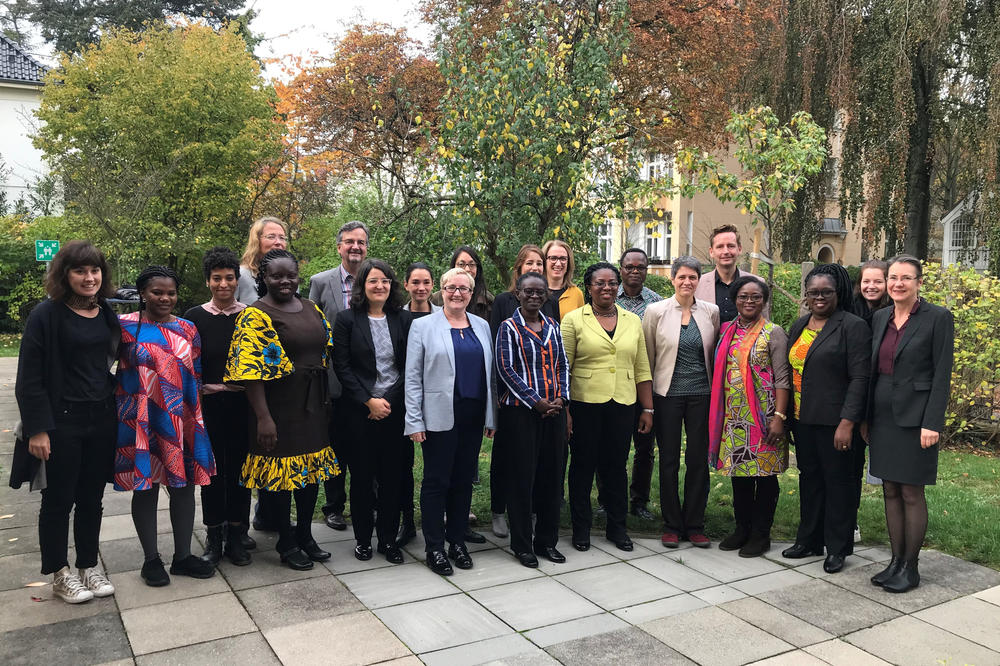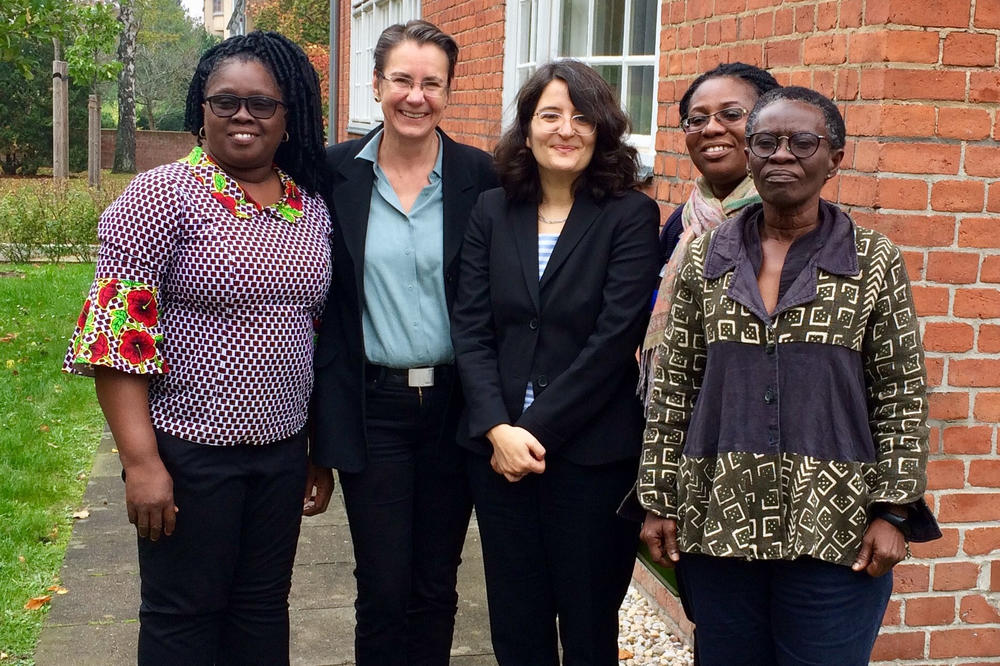Equality from a Ghanaian-German Perspective
A delegation from the University of Cape Coast (UCC) visited Freie Universität to learn about gender equality structures here.
Dec 05, 2019
A delegation from the University of Cape Coast (UCC) traveled to Germany through the FUTURA program to attend a workshop at Freie Universität.
Image Credit: Azra Iman Kiss
FUTURA is a program at Freie Universität that is unique in Germany. The two-year qualification program prepares participants for gender-competent behavior/activities at work. It was developed by the Chief Gender Equality Unit at Freie Universität Berlin. Recently a group of women, all on the staff of the Ghanaian University of Cape Coast, traveled to Berlin to learn more about this program and other equal opportunity measures at Freie Universität.
The five-day workshop is part of a German-Ghanaian project led by Gülay Çağlar, a professor of gender and diversity at the Otto Suhr Institute of Political Science in cooperation with the Chief Gender Equality Officer at Freie Universität, Mechthild Koreuber, and Brigitta Schütt, a professor of physical geography, formerly the vice president in charge of equality at Freie Universität.
From left: Dr. Genevieve Adkupo (UCC), Dr. Mechthild Koreuber (Chief Gender Equality Officer, Freie Universität), Prof. Gülay Çağlar (Otto Suhr Institute), Georgina Yaa Oduro (Director, Centre for Gender Research, UCC), Prof. Akua O. Britwum (UCC)
Image Credit: Azra Iman Kiss
Findings Also Useful for Other African Universities
The two universities are working together for four years to promote equal opportunities in higher education. “In the first project phase we are exchanging information,” says Mechthild Koreuber. “At the University of Cape Coast (UCC), we presented the concept of gender equality officers and held a workshop on the topic for women working there. At the same time, we are learning from the commitment of the employees there.” The next goal is to make results of the joint work on university gender equality policy usable for universities in other African countries. For example, plans are being made to include Kenyatta University in the Kenyan capital of Nairobi as one of the partner institutions in the third year of the project. The “EQUIP – Equal Opportunities in Higher Education” project is funded by the German Academic Exchange Service (DAAD).
In May Gülay Çağlar, her colleague Jennifer Chan de Avila, Mechthild Koreuber, and the gender equality officer at the Department of Physics Beate Schattat traveled to Ghana for a working visit at the start of the project. Now a delegation of eight people from the University of Cape Coast made a return visit to Berlin. “We are particularly interested in the institutionalization of gender issues,” says Akua Britwum, describing her interests in the project, “in particular, how the process was initiated at Freie Universität.”
Fighting Sexual Harassment Is an Important Part of the Job
Akua Britwum is a professor of gender and labor studies at UCC. Six years ago, she co-founded the Center for Gender Research, Advocacy and Documentation (CEGRAD). “CEGRAD is a shared platform for gender research from various disciplines and provides counseling to all the departments of the university,” she says. “We ensure that degree programs and courses are designed to be gender-appropriate and promote equality in the recruitment of staff and the admission of students.”
Another important part of the work is the fight against sexual harassment. The staff at CEGRAD offer courses in which women and men are informed about equal rights, sexual self-determination, and legal aspects. They have also set up an arbitral tribunal, which acts in cases of sexual harassment at the university. “During our visit to Ghana, we found that their work on sexual discrimination and harassment has progressed much further than ours,” says Gülay Çağlar.
“Due to their different legal and organizational structures at the university, the colleagues in Ghana have more possibilities to take action. In this area we can gain important impulses for our work at Freie Universität,” explains Mechthild Koreuber. “As far as anchoring gender equality in management and administration is concerned, Freie Universität is further than the UCC, but it is very interesting for us to have a reflective discussion on factors promoting success as well as obstacles.”
Goal: “Real Change in the Administration”
“We are already very well positioned at UCC in terms of base work,” says Genevieve Adukpo, a chemist who was the director of CEGRAD from 2017 to 2019. “At Freie Universität we now want to get new ideas on how we can become stronger at the top level.” The current director of CEGRAD Georgina Oduro hopes the same thing. She says, “We want to work together to develop strategies and ways to lobby: Real change in the administration is not an easy task.”
The original German version was published on November 26, 2019, in the campus.leben online magazine of Freie Universität Berlin.


